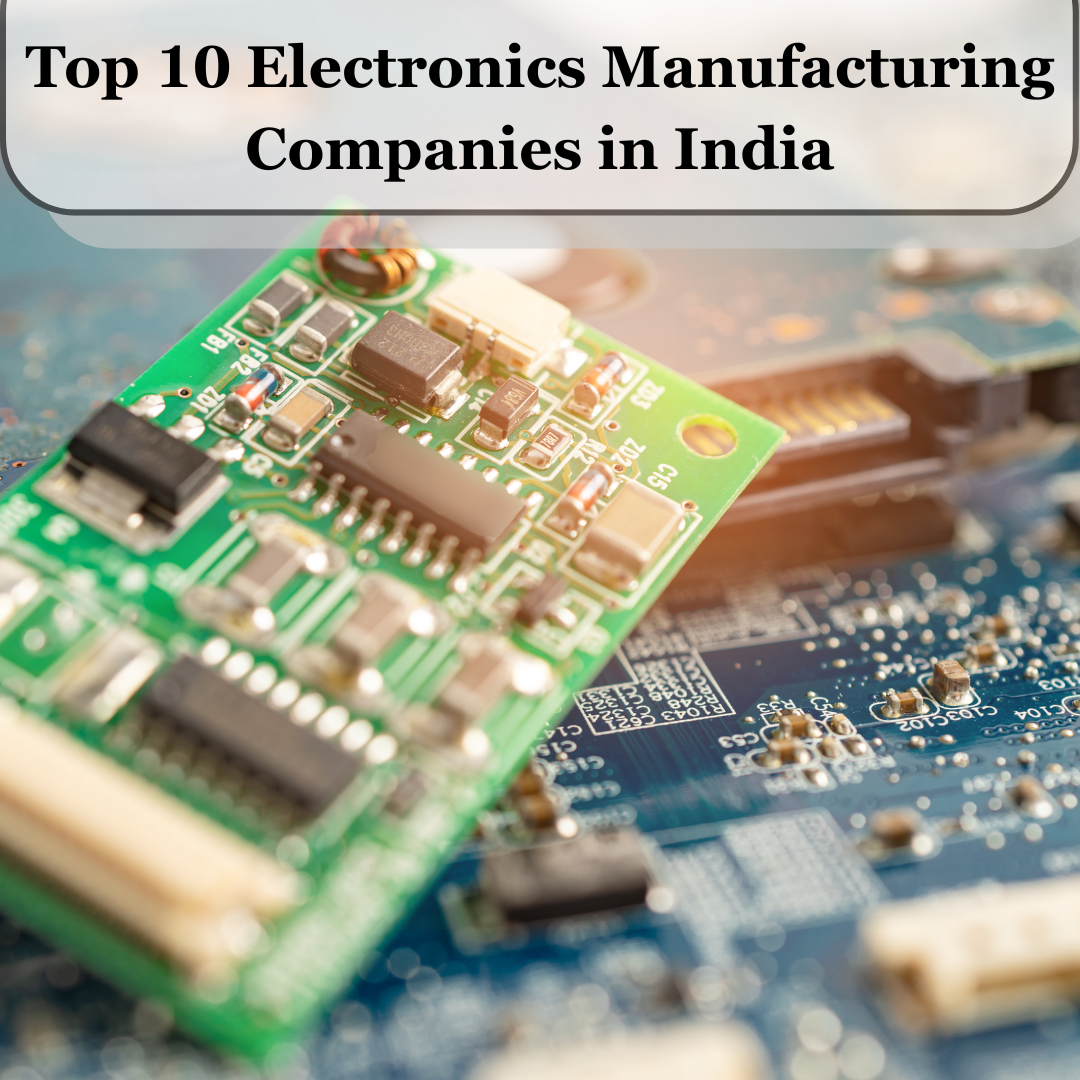Top Electronics Manufacturing Companies in India: Building the Backbone of a Digital Nation

India’s rapid rise as a global hub for electronics manufacturing is nothing short of transformational. With strategic government support, world-class infrastructure, and a growing ecosystem of innovative companies, the country is poised to become a key player in the global electronics value chain. In this comprehensive article, we’ll explore the top electronics manufacturing companies in India, the driving forces behind their growth, and the opportunities this sector presents to global buyers, startups, and OEMs.
The Evolution of India’s Electronics Manufacturing Landscape
India's electronics industry has evolved from being primarily import-driven to a vibrant and increasingly self-reliant sector. From smartphones to semiconductors, local companies now produce a wide spectrum of electronic products. This transformation has been made possible by a mix of policy reforms, technological investments, and increasing demand from both domestic and global markets.
What is Electronics Manufacturing?
Electronics manufacturing includes the design, development, assembly, testing, and packaging of electronic components and devices. It covers everything from printed circuit boards (PCBs), consumer electronics, and semiconductors to industrial and automotive systems. India is now home to companies that offer end-to-end electronics system design and manufacturing (ESDM) solutions.
How Big is India’s Electronics Industry?
The Indian electronics manufacturing market surpassed $100 billion in 2023 and is on track to reach $300 billion by 2026. Fueled by growing digital adoption, smartphone penetration, and government incentives, the industry is growing at an average CAGR of 15–20%. India is currently the second-largest mobile phone manufacturer globally.
Why India is Becoming the Preferred Electronics Manufacturing Destination
Several factors make India an attractive hub for electronics production:
Skilled engineering talent at scale
Low manufacturing costs
Favorable trade policies
A vast consumer base
Policy support for domestic manufacturing
Global players like Apple, Samsung, and Foxconn are already investing heavily in Indian operations, indicating long-term confidence in the country’s capabilities.
Key Government Initiatives Fueling the Boom
Make in India
Launched to transform India into a global manufacturing hub, this initiative has prioritized electronics as a key sector. It encourages both domestic and foreign players to set up manufacturing operations within India.
PLI Scheme (Production Linked Incentive)
This scheme incentivizes incremental production and export performance across electronics verticals. It has attracted billions in investments from global brands.
Electronics Manufacturing Clusters (EMC)
Dedicated EMCs in cities like Noida, Bengaluru, and Chennai offer integrated infrastructure, logistics, and a conducive ecosystem for electronics manufacturers.
Major Segments in India’s Electronics Manufacturing Industry
1. Consumer Electronics
From televisions and air conditioners to kitchen appliances, Indian manufacturers are meeting rising domestic demand while also serving export markets.
2. Smartphones & Wearables
India is a global production hub for smartphones. Brands like Xiaomi, Oppo, and Samsung have large-scale assembly units operating within India.
3. Automotive Electronics
As the electric vehicle (EV) segment gains traction, so does the demand for in-vehicle electronics, including battery management systems and smart dashboards.
4. PCB & Semiconductor Assembly
India is investing in PCB and chip design, with plans to develop indigenous semiconductor fabs in Gujarat and Karnataka.
Top Electronics Manufacturing Companies in India
1. Dixon Technologies
A leading EMS provider that manufactures:
LED TVs
Smartphones
Security systems
Home appliances
Dixon partners with renowned brands like Samsung, Philips, and Panasonic and has manufacturing facilities across multiple Indian states.
2. Bharat Electronics Limited (BEL)
A PSU under the Ministry of Defence, BEL is the backbone of India’s defense electronics ecosystem. It produces:
Radars and communication systems
Electronic warfare devices
Avionics for military aircraft
3. VVDN Technologies
A vertically integrated design-to-manufacture company that specializes in:
IoT devices
5G and telecom equipment
Cloud-connected smart products
Their end-to-end capabilities span product engineering, PCB design, and final assembly.
4. Kaynes Technology
Serving diverse sectors like automotive, industrial automation, medical, and consumer electronics, Kaynes offers:
High-speed SMT
PCB assembly
Prototyping and mass production
5. SFO Technologies (NeST Group)
Known for high-precision manufacturing across:
Healthcare
Aerospace and defense
Energy and automation
They provide full lifecycle support from product ideation to volume manufacturing.
The Role of EMS (Electronics Manufacturing Services) in India
EMS providers are essential to India’s electronics value chain. These firms offer scalable production services including:
PCB assembly
SMT (Surface Mount Technology)
Testing and inspection
Final product integration
By outsourcing to electronics manufacturing companies, OEMs can reduce costs, increase speed to market, and maintain product quality.
Rise of Advanced PCB Assembly & SMT Technology
PCB assembly and SMT have become central to India’s ESDM success. Indian companies now offer:
Multi-layer board production
Lead-free soldering
Automated Optical Inspection (AOI)
RoHS compliance
Cities like Pune, Bengaluru, and Chennai are emerging as high-tech PCB manufacturing hubs.
India’s Strengthening Electronics Supply Chain
India’s supply chain is maturing fast, with increased local sourcing of components like:
Connectors and cables
Enclosures and plastic parts
Passive components
While semiconductor fabrication is still in early stages, government initiatives like the Semicon India Program aim to reduce import dependence.
Challenges Facing the Industry
1. Semiconductor Import Dependency
Despite growth in chip design, fabrication capabilities are still limited. India currently imports most of its semiconductors from Taiwan, China, and South Korea.
2. Talent and Training Gaps
Though India produces over a million engineers annually, many lack specialized training in embedded systems, VLSI, and hardware design.
3. Infrastructure Hurdles
Challenges remain in last-mile logistics, power supply, and setting up plants in remote areas. Tier-2 and Tier-3 cities are still catching up.
The Future of Electronics Manufacturing in India
India’s ambition is not just to assemble — but to innovate. With increasing R&D investments, AI integration, and Industry 4.0 practices, India is shifting toward high-value manufacturing. Key trends include:
Smart factories and automation
IoT-integrated devices
AI-based predictive maintenance
Localization of design and development
How to Select the Right Electronics Manufacturing Partner in India
Before you choose a manufacturing partner, evaluate:
Certifications: ISO 9001, ISO 13485 (medical), IATF 16949 (automotive), RoHS, CE
Manufacturing Capacity: SMT lines, clean rooms, assembly cells
Prototyping Capability: Quick-turn NPI and low-volume production
Testing Infrastructure: Functional testing, burn-in testing, and reliability analysis
Experience in Your Domain: Medical, defense, automotive, telecom, etc.
How FindingMFG Helps You Source the Right Manufacturer
FindingMFG.com is a global sourcing platform that simplifies manufacturer discovery. It allows users to:
Compare verified electronics manufacturers in India
Check certifications, past work, and plant capacities
Post RFQs and get competitive quotes
Collaborate directly with suppliers
Whether you need prototyping, full-scale production, or long-term partnerships, FindingMFG helps bridge the gap.
Conclusion
India's emergence as a global electronics manufacturing leader is backed by real numbers, real infrastructure, and real innovation. The country now offers everything from PCB design to finished electronics assembly, meeting international standards across sectors. For startups, global OEMs, and supply chain managers alike, India represents both a manufacturing opportunity and a strategic investment.
With platforms like FindingMFG.com, connecting with trusted electronics manufacturing companies in India has never been easier.
FAQs
1. What are the top electronics manufacturing companies in India?
Dixon Technologies, Bharat Electronics (BEL), VVDN Technologies, Kaynes Technology, and SFO Technologies are among the leading players.
2. Is India a good place for electronics contract manufacturing?
Yes. India offers a strong EMS ecosystem, skilled labor, low costs, and growing infrastructure — ideal for contract manufacturing.
3. What certifications should I look for in an Indian electronics manufacturer?
ISO 9001, ISO 13485, IATF 16949, RoHS, and CE are important for quality and regulatory compliance.
4. Can Indian manufacturers support global export requirements?
Many Indian companies are already exporting to the US, EU, and Southeast Asia with robust compliance and logistics capabilities.
5. How can I find the right electronics manufacturing company in India?
Use FindingMFG.com to explore, compare, and connect with verified Indian manufacturers based on your exact project needs.
Note: IndiBlogHub features both user-submitted and editorial content. We do not verify third-party contributions. Read our Disclaimer and Privacy Policyfor details.







